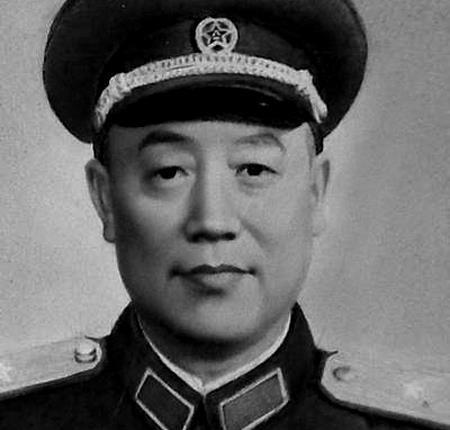In the Liaoshen Campaign, Jiao Yushan, the leader of the "Tashan Hero Regiment", held a position after the founding of the People's Republic of China
When it comes to the Liaoshen Campaign, we will definitely mention the Tashan Blockade Battle, and when we mention the Tashan Blockade Battle, we have to mention the "Tashan Hero Regiment", which provided a powerful guarantee for the main forces to capture Jinzhou, and the regimental commander Jiao Yushan even became a member of our army.

Jiao Yushan, a native of Funan, Anhui Province, was born in 1915 and joined the Chinese Workers' and Peasants' Red Army at the age of 16. When he first joined the Red Army, Jiao Yushan, because of his young age and short stature, was known as the "Little Red Devil", and was incorporated into the Student Corps Company of the 20th Regiment of the Eyu-Anhui Red Army as a serviceman; in 1933 he was transferred to the first squad leader of the communications platoon of the guard squad of the 265th Regiment headquarters of the Red Fourth Front, and in 1935 he was appointed as the commander of the Cadet Company of the General Political Department of the Red Fourth Front; he experienced the Battle of Sujiabu and the successive anti-"encirclement and suppression" struggles in the revolutionary base area of Eyu-Anhui, and accompanied the main force of the Red Fourth Front army on a westward expedition to participate in the creation of the Sichuan-Shaanxi Soviet District and the "six-way siege" to block the Kuomintang army. In March 1935, in the Battle of Qiangdu Jialing River, he led the communication soldiers of the guard platoon to quickly climb the beachhead, launched a strong attack, occupied the enemy position, and created conditions for the successful crossing of the follow-up troops. Later, with the Long March of the Red Fourth Front, he climbed snow-capped mountains and crossed meadows and endured hardships.
At the end of the Long March in October 1936, Jiao Yushan was incorporated into the Western Route Army, crossed the Yellow River, went deep into the Hexi Corridor, and moved to Ningxia, Qinghai and other places. In March 1937, due to the enemy's outnumbered enemy, the Western Route Army suffered heavy losses and began to move to the northwest. During the transfer, Jiao Yushan's troops were scattered by enemy cavalry, Jiao Yushan was wounded, and was captured by the Kuomintang local militia and detained in Zhangye Prison for 10 days. Later, he jumped off the wall and escaped on the way to Qinghai. Alone, he endured hunger and searched for troops day and night in the long desert until he fainted on the ground. When he woke up, he realized that he had been rescued by Liu Bocheng's Western Aid Army and returned to the revolutionary ranks.
During the War of Resistance Against Japanese Aggression, Jiao Yushan served as the commander of the guard company of the 269th Regiment of the 385th Brigade of the 129th Division of the Eighth Route Army and the captain of the 3rd Anti-Japanese Brigade in Yan'an. In August 1940, the "Battle of the Hundred Regiments" was launched in North China, and the task of the 269th Regiment was to uproot the Japanese Guanjia'an stronghold on Zhengtai Road. Jiao Yushan commanded the guards to charge forward, wounded in the head and not in the line of fire, after three days and nights of fierce fighting, together with the brother troops, killed and wounded more than 300 Japanese troops, took the Guanjiayuan, and cleared the way for the follow-up troops to unfold.
In early October 1948, the Liaoshen Campaign was in full swing. In order to cut off the connection between the Chiang Army in the northeast and North China and form a trend of "closing the door and fighting dogs", the Northeast Field Army quickly took Jinzhou, the gateway from the northeast to Guannei. According to the changes in the enemy situation, the Northeast Field Army decided to attack Jinzhou with the main force, and dispatched 2 columns and 9 divisions to block the enemy's westward advancing corps in the area of Tashan and Gaoqiao, west of Jinzhou, Jiao Yushan and the 34th Regiment were arranged with the 12th Division of the 4th Column to which they belonged, and the 34th Regiment was arranged at the Tashan Fort, a key resistance position. The Tashan Blockade Battle was the key to annihilating the enemy defending Jinzhou and capturing Jinzhou, and Jiao Yushan felt a heavy responsibility after receiving the task, but he firmly stated to the chief: He would not give in any land, hold Tashan to the ground, and coexist and die with the position. After two days and nights of bloody fighting, the Thirty-fourth Regiment withstood the attack of the enemy several times larger than itself, and won precious time for the main force to conquer Jinzhou. After the war, the Thirty-fourth Regiment was awarded the glorious title of "Tashan Hero Regiment", and the regimental commander Jiao Yushan became a well-known member of the whole army.
After the founding of the People's Republic of China, Jiao Yushan served as deputy political commissar of the Guangdong Provincial Public Security Corps, deputy commander of the 47th Army, and deputy commander of the Guangxi Military Region, and participated in the command of the 1974 counter-attack on the Yongle Islands in the Western Sands and the 1979 self-defense counterattack against Vietnam.
In 1955, Jiao Yushan was awarded the rank of colonel, promoted to major general in 1964, and died in Guangzhou in 1990, and his ashes were buried in Tashan.